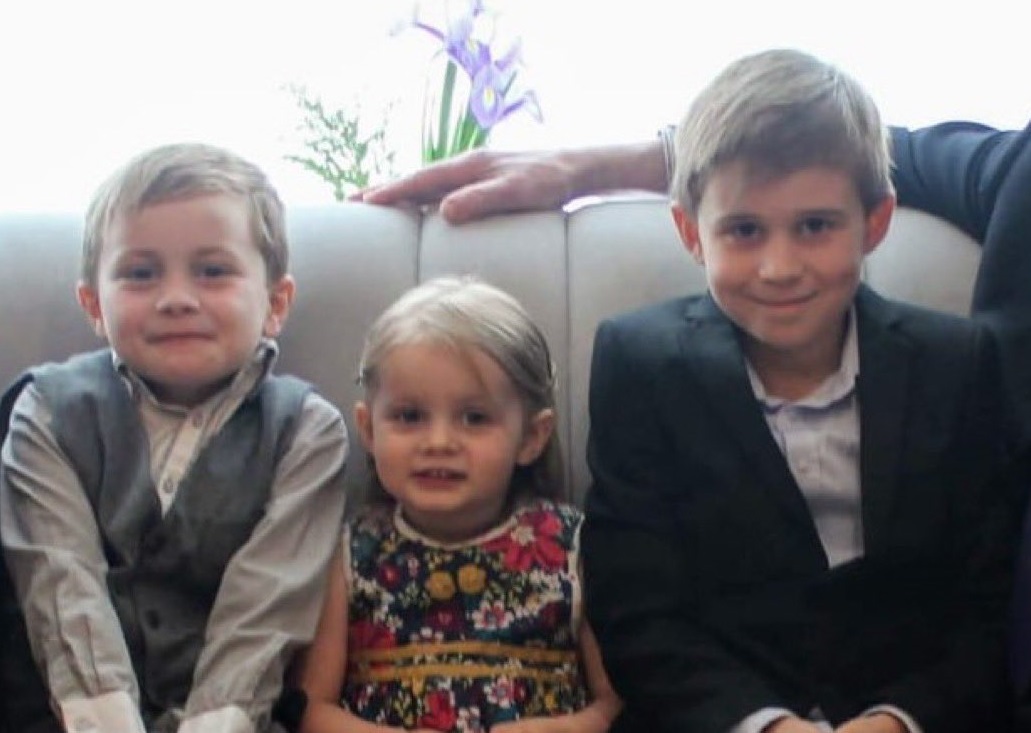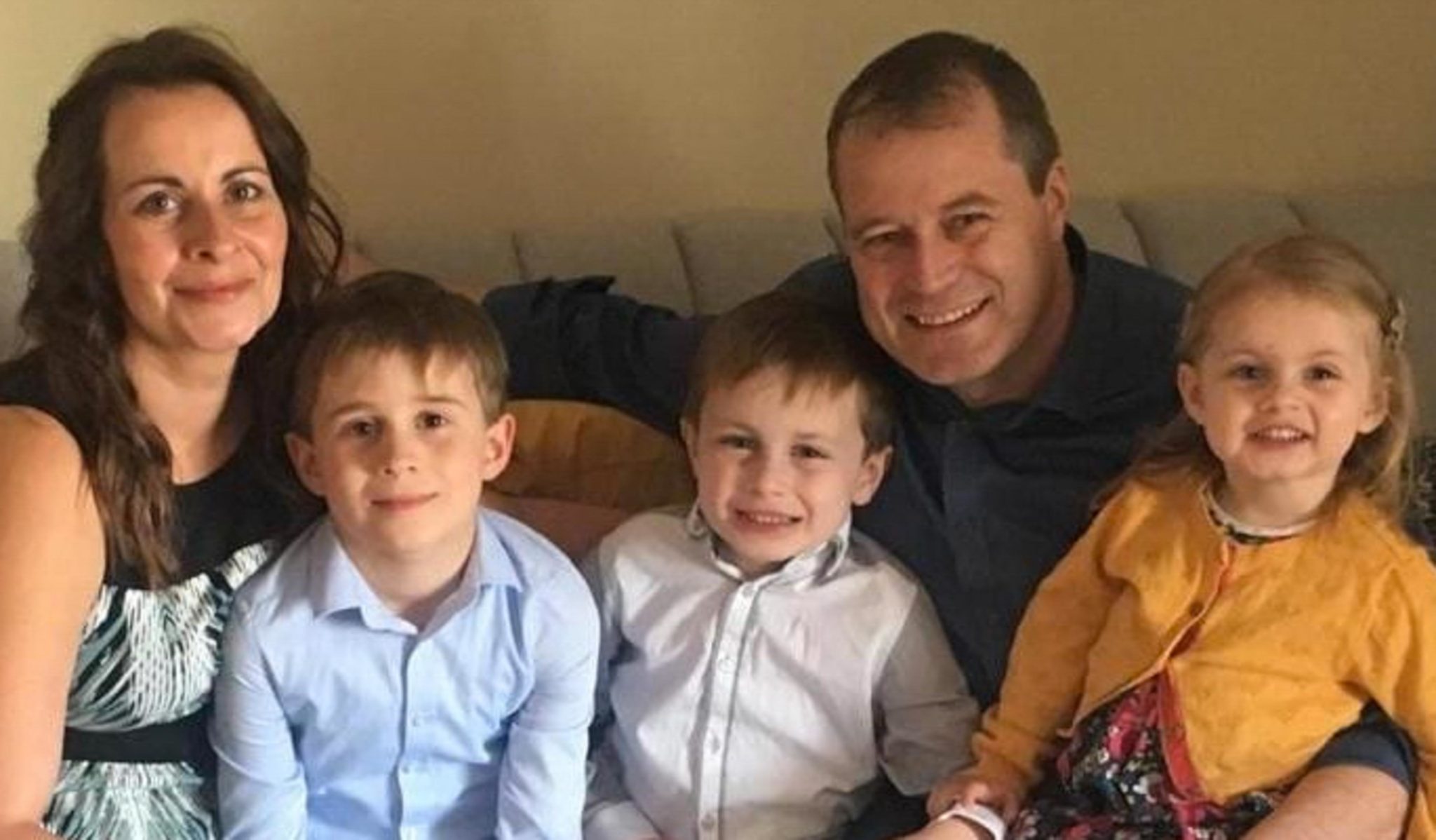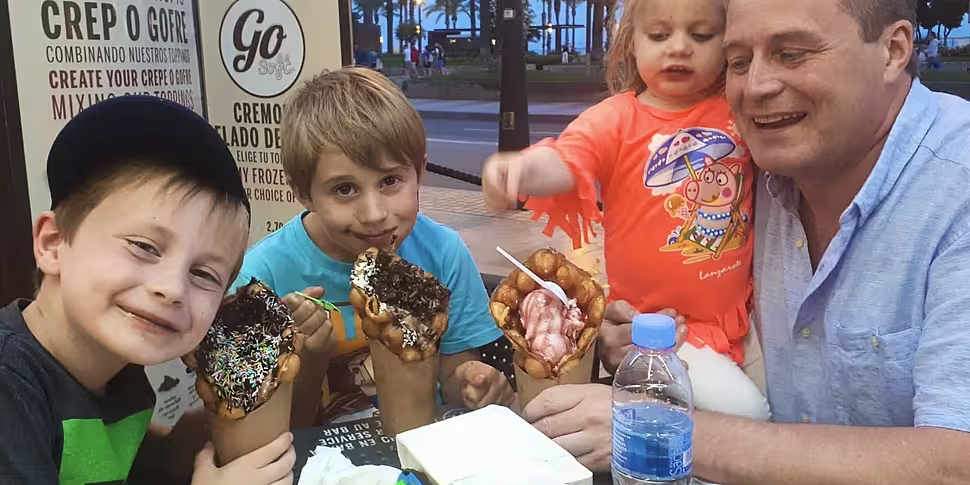The father of three children who were killed by their mother in 2020 has said a new mental health bill doesn't go far enough to help the immediate families of patients.
Nine-year-old Conor McGinley, his seven-year-old brother Darragh and three-year-old sister Carla were killed by Deirdre Morley four years ago.
Ms Morley was later found not guilty of their murder by reason of insanity.
Andrew McGinley has since been campaigning for immediate family members to be kept informed of their loved ones' treatments when it could affect others, specifically children.
He told Lunchtime Live a new bill to overhaul the State's mental health laws does not go far enough.
"For four years I have campaigned for family engagement, only to find out in the HSE review of Deirdre Morley's treatment that was issued to me late last year, that there was an element of family engagement," he said.
"I do not know the quality of that family engagement; it was with, I believe, members of Deirdre's family and a friend of hers.
"But for the new bill to hang its hat on the patient being allowed to nominate a family member I think in our case it clearly shows that that process did not work.
"For me, when there's children involved, I'm trying to campaign for the rights of a co-parent to be fully informed, fully advised and fully supported.
"When I reflect on our situation, had I been fully aware of everything that I'm now aware of, I feel that the risk to Conor, Darragh and Carla would have been completely eliminated and they would be alive today".
 Conor, Darragh and Carla McGinley. Image via @conorsclips on X
Conor, Darragh and Carla McGinley. Image via @conorsclips on XMr McGinley said that, unless the nominated party is a member of the family household, the new provision is 'useless'.
"Asking a patient to nominate somebody, if they're not nominating somebody who is part of the family dynamic, then it's pretty much useless," he said.
"A nominated person, if they're not in the house day in, day out... then all they're going to be speaking to the clinicians about is what they've heard from the patient.
"So, it really doesn't make sense to have anybody other than a key member of the family dynamic of the house - that's the only way you're going to get a true reflection of what is happening in the patient's life".
 Deirdre Morley and Andrew McGinley with their children Conor, Darragh and Carla McGinley
Deirdre Morley and Andrew McGinley with their children Conor, Darragh and Carla McGinleyMr McGinley said he was put at ease in the one meeting he had about his wife.
"I had one meeting with a clinician; I was not given the diagnosis that I can now see in the medical notes," he said.
"I was not told that Deirdre Morley was expressing concerns about being around the children, that she did not feel safe around the children.
"I was not told, and the information that came out at the trial, that Deirdre Morley had a suicidal ideation.
"That was all kept from me.
"The one meeting I did have put me at ease as opposed to putting me on alert – and actually took me off-guard as opposed to putting me on-guard".
'Our life was normal'
Mr McGinley said that, while he believes patient confidentiality played a part in this approach, it should not have been as important as his family.
"I assume it's patient confidentiality; however, I would believe that once decisions are being made about a patient that will have an impact on others, then you cannot hide behind patient confidentiality," he said.
"Decisions were being made by clinicians about me, Conor, Daragh and Carla that they shouldn't have been allowed to make.
"They made a decision that they had a patient who had a suicidal ideation, and who had expressed a concern about being around her children, and then made a decision to allow that patient to be around her children.
"Our life was normal, so all I was seeing was a normal loving mother looking after her children," he added.
Mr McGinley said he also has concerns around a patient's capacity if it is being altered using pharmaceuticals.
Listen back here:
Walking the Walk will take place on April 20th and 21st to raise funds for the As Darragh Did charity. People can register here









